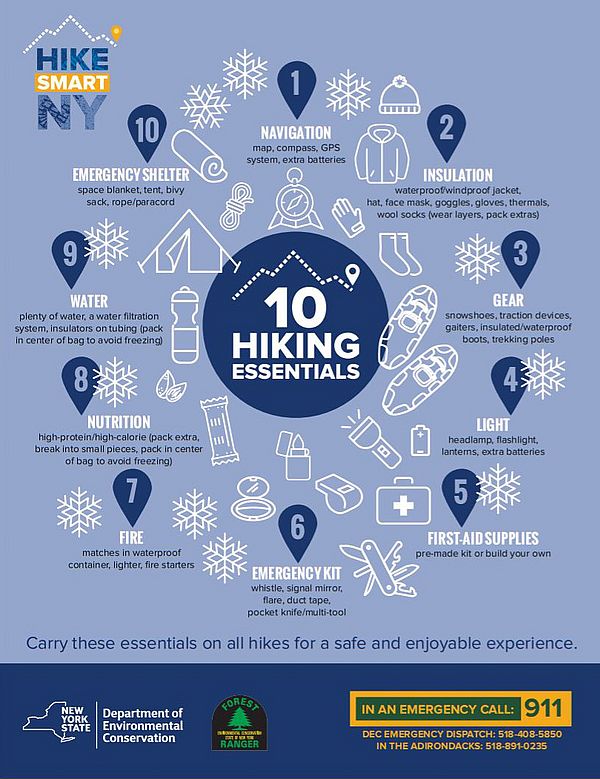Winter Recreation in the Lake Champlain Watershed During COVID-19
Winter is a great time to get outdoors and it is especially helpful and healthful during the pandemic. The cold, crisp air is exhilarating and there are no biting insects! Some of the mantras for recreating safely in winter during Covid-19 are: prepare ahead, play local, physically distance from anyone not in your household, and move on after your outing so that others can enjoy the space. Below we share excerpts from guidelines for playing outdoors safely from our friends at the New York Department of Environmental Conservation (NY DEC) and Vermont Forests, Parks and Recreation (VT FPR).
Stay Home If You’re Sick – Don’t venture out if you’re not feeling healthy or have been exposed to COVID-19. Don’t put the health of others at risk.
Be Prepared – Plan for cold, wind, ice, deep snow, and varying temperatures as conditions can change quickly. Carry enough food and water, appropriate gear (wind and water protective layers and traction devices), extra warm clothing, and a non-cell phone light source with extra batteries to be self-sufficient for an extended period of time and prepared for a backcountry emergency. Check out NY DEC’s Winter Hiking Safety Tips to guide your packing and prep before leaving home.
Check the Weather – Check the National Weather Service for current conditions and forecasts for where you plan to recreate including both daytime and nighttime temperatures. Expect conditions to be much harsher on mountain summits.
Know Before You Go – Trail use often peaks between 10:00 a.m. and 2:00 p.m. on weekends and holidays at high use areas. Go early or go during the week to avoid congestion. In New York, check local and state park websites. In Vermont, check trailfinder.info for further information on some locations.
Manage Your Time – Be mindful of sunrise and sunset times, and plan accordingly. Start long hikes early to maximize sunlight hours, and always bring a headlamp.
Park Safely – Parking space at trailheads is often limited. Have a back-up plan to go somewhere else if you encounter a crowded lot. Don’t socialize or tailgate in parking areas before or after recreating.
Take It Easy – Plan your trip responsibly and don’t take unnecessary risks that burden the healthcare system and emergency responders. Help can be difficult to summon and there may be significant delay in receiving emergency assistance.
Respect Travel Guidelines – Follow state quarantine requirements in Vermont at accd.vermont.gov/travel and in New York at coronavirus.health.ny.gov/covid-19-travel-advisory (click here for a downloadable PDF).
Mask Up – Pack a mask when recreating outdoors and put it on in advance of encountering others.
Keep Your Distance – Give people outside your household at least six feet or more of space. When yielding to other groups, move well off the trail. Do not carpool with anyone outside your household.
Leash Your Dog – Dogs bring people together but can bring people closer than the six-foot distance. Treat pets as you would human family members and do not let them interact with people outside your household.
